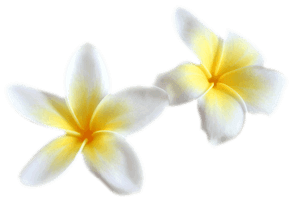- Home
- /
- Uncategorized
- /
- One News highlights high rates but low access to help for Pasifika

One News highlights high rates but low access to help for Pasifika
Two recently released studies were the focus of a ONE news story recently which highlighted high rates of suicide attempts for Pasifika youth but low rates of access to mental health services. You can view the news article below with our CEO, Dr Monique Faleafa contributing to discussion. Monique has also expanded on the news story below, outlining some solutions to the issues outlined in the articles.
Ethnic inequality in access to help means we need our services to be more culturally responsive
The study by Lee, Duck and Sibly, analysed data from the 2014/15 New Zealand Health Survey and showed that Maori, Pacific and Asian New Zealanders are more likely to be under-diagnosed with depression and anxiety disorders relative to European New Zealanders. It also showed that both Pacific and Māori peoples tend to have poorer mental health, but Pacific peoples exhibit lower rates of actual diagnosis and mental health service use than Māori. The study concluded that this inequality may reflect ethnic group differences in access to, expectations from and style of communication with, medical professionals.
One evidence-informed strategy to improve communication and reduce ethnic disparities in access, quality and outcomes for mental health and addiction services is training the workforce to be more culturally responsive to diverse needs. The study’s results were no surprise for Le Va because a recent stocktake of mental health services in 2014/2015 showed that 74% of all mental health and addiction services in New Zealand indicated the need for Pacific cultural competency – in fact it was in their top five training needs. Our mental health workforce are aware of the different needs of Pasifika people and their families and would like to learn how to provide the best possible services for Pasifika.
Le Va’s aim is to train the mental health workforce to be more culturally competent through our Engaging Pasifika cultural competency training programme – to have the right skills, knowledge, and attitude to work effectively with our Pasifika families. It’s free of charge for mental health and addiction workers, so if you’re interested please contact us.
A second generally accepted strategy that can contribute to reducing these ethnic disparities is to ensure that the ethnicity of our mental health workforce reflects the ethnicity of the population they serve. In New Zealand’s case, we need to increase the number (and skills) of qualified Pacific people working in mental health – especially the Auckland region, where 3/4 of Pacific people live and demand far outweighs supply. Pacific people can bring language, communication, and cultural skills as well as vast community networks to a service – enhancing engagement and access for our most vulnerable. Le Va is contributing to this in a significant way through our Futures that work scholarships and support programme (including our Le Tautua emerging leaders programme) – for 2017 we’ve funded the largest cohort ever, accumulatively growing a national Pasifika mental health and addiction workforce over the last 7 years.
Of course, enhancing cultural responsiveness of the workforce and increasing the size and skills of the Pasifika workforce requires tools and resources to support their work with Pasifika individuals and families. You can download a variety of resources from our resource centre – like our Talking Therapy practice guides for working with Pasifika people.
High rates of suicide attempts for Pasifika young people needs to be addressed with urgency
The second study was NZ’s first published statistical analysis of suicide mortality among Pasifika people in NZ. Many of us will already know that Pasifika young people have high rates of Suicide attempt, but it was important to publish the data, with some helpful suggestions of what to do about it.
Through our relatively new FLO: Pasifika for Life national suicide prevention programme, Le Va is committed to turning the curve – so that our Pacific youth do not have the highest rates of suicide attempts across all ethnicities. You can learn more mental health information about our young people’s wellbeing by viewing a video of a snaphot of Pasifika young people’s wellbeing here, with many other resources specifically co-designed with young people to support Pasifika young people and the services that help them. Aunty Dee is one of these tools – online structured problem solving based on cognitive behavioural therapy that has been shown to reduce symptoms of depression in adolescents as well as promising practice for preventing suicide.






